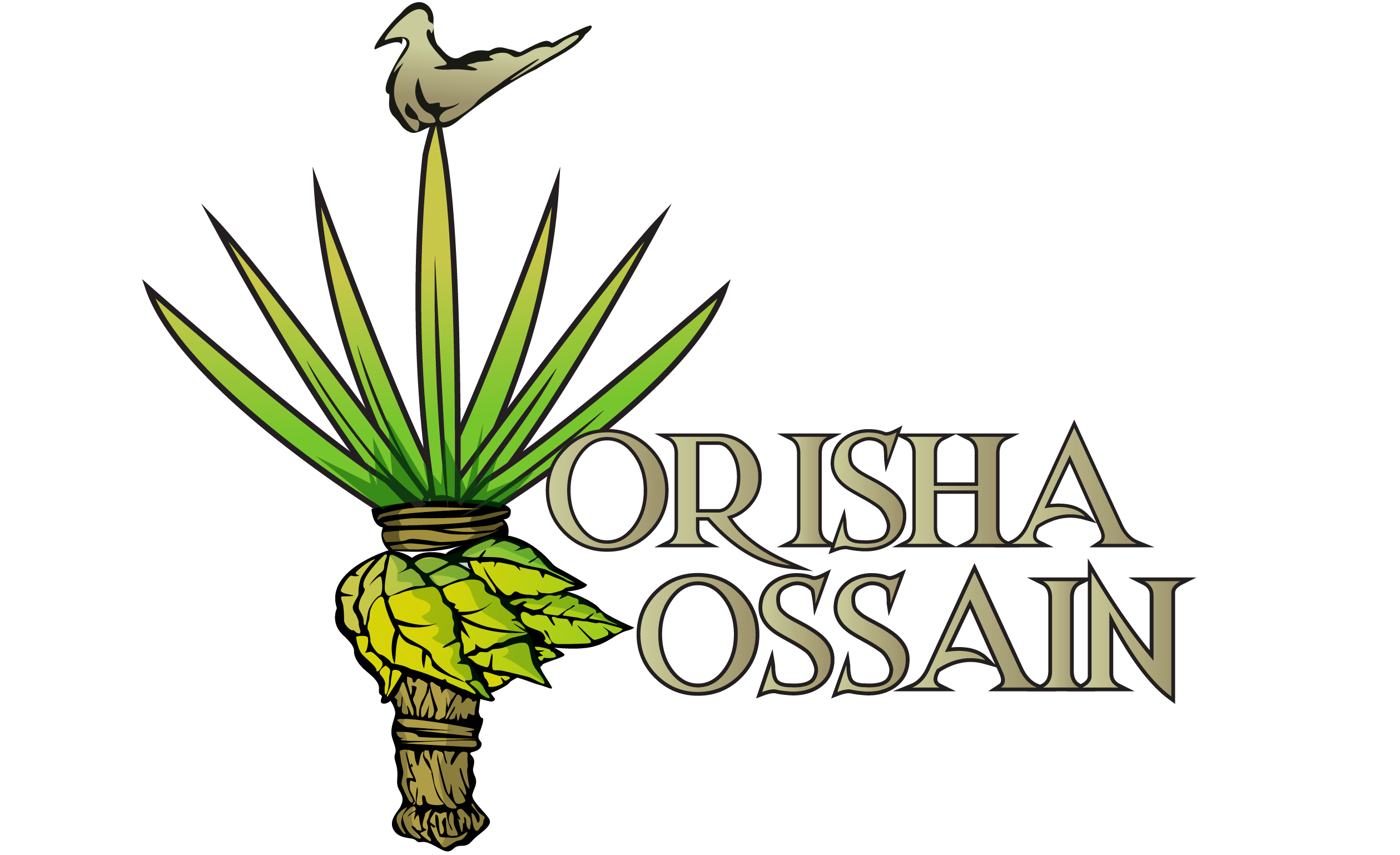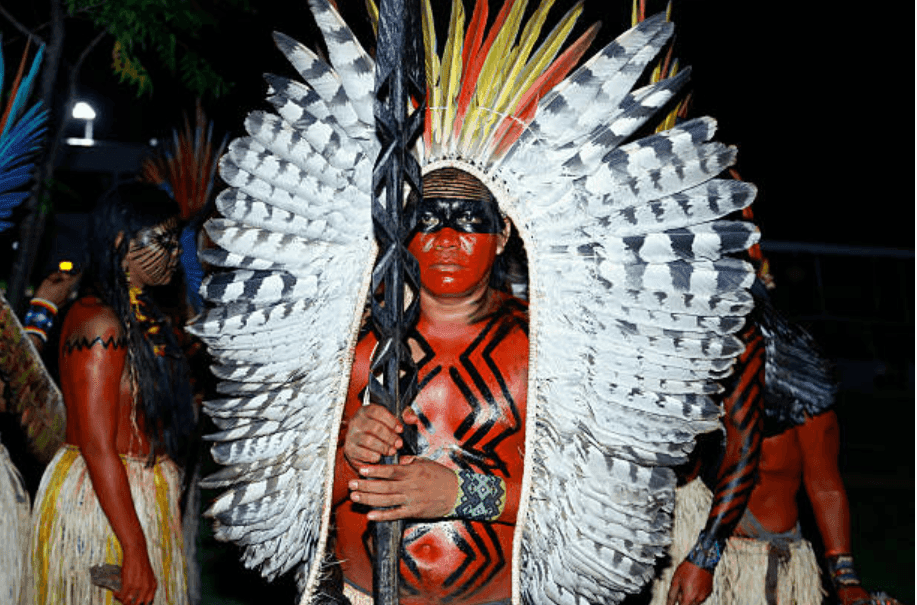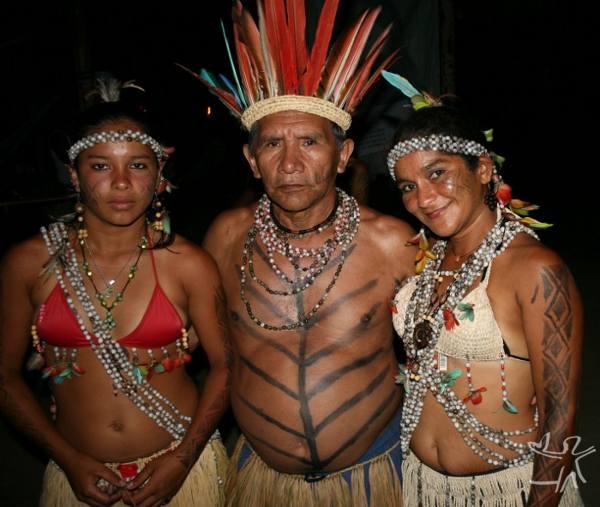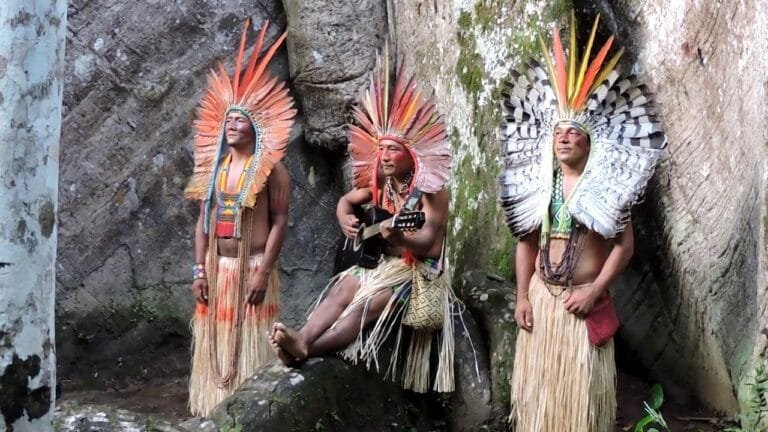The Yawanawá
The Yawanawá (also known as Laminaua, Jaminawa, Yaminawá) are an indigenous group of approximately 1,300 people, residing in small settlements along the Gregorio River. Their traditional homeland spans Acre (Brazil), with some communities also in Madre de Dios (Peru) and Bolivia.
Language and Culture
The Yaminawá language is part of the Panoan language family, with linguists estimating that fewer than 1,600 people are fluent speakers. Only a small number of Yawanawá individuals speak either Spanish or Portuguese, and literacy levels within the community remain quite low.

A Conversation with Nixiwaka Yawanawá
Nixiwaka Yawanawá currently resides in London, where he collaborates with Survival International to advocate for the rights of indigenous Amazonian peoples. His home community, Yawanawá, consists of over 900 members.
Original Yawanawá language:
Êwê anê Nixiwaka, Ê Yawanawa ihuhu, êwê yurahûki kânu, pênâku hiash. Mâ ika ânu, matuvê iwânâ, mahu tapipai ê uitamêa. Nênuashê kashê êwê yurahâu ravâna ipai.
Translation:
My name is Nixiwaka. I come from the Yawanawá people. One day, I plan to return to my community, but first, I wish to remain in the United Kingdom for a while so that I can better help my people when I go back.

Yawanawá – The People of the Wild Boar
The name “Yawanawá” translates to “The people of the wild boar.” This is because we always stick together, both in hunting and in life. We move like a pack. I was born in Kaxinawa, the most sacred region of Yawanawá territory, where my ancestors originated. Kaxinawa is where my grandfather, along with many of our great chiefs, are buried.
The Jungle Doctors
Within our community, we have individuals known as “jungle doctors,” who possess vast knowledge about medicinal plants. They say that this world is a wonderful place, and we all have the duty to care for it.
I understand that Western medicine is now discovering remedies from the same plants that the Yawanawá have used for centuries. From tree bark to frog secretions, we hold the knowledge of both cures and poisons.
Ancient Plant Medicine
Women in our tribe rub a type of potato plant called “rau” on their bellies to promote fertility. Other plants, such as “hukâshupa,” are used to strengthen romantic relationships. This mixture, made from three ground plants, is applied like perfume to attract a lover. Our jungle is truly a magical place.
Bridging Two Worlds
Perhaps the Western world can learn from us how to live in greater harmony with nature. Combining Yawanawá’s deep understanding of the environment with modern ideas could bring about a more balanced and peaceful way of life.
Rumê and Ayahuasca Ceremonies
For countless generations, the Yawanawá have used “rumê,” a form of snuff made from the bark of a specific tree, as part of our cultural traditions. It is especially significant during our sacred ayahuasca ceremonies, which we call “uni.”
Daily Life in the Jungle
Breakfast typically consists of bananas, papaya, sugar cane, and cassava juice, called “caiçuma.” Occasionally, we eat leftover meat from the previous night’s meal. Lunch usually includes cassava, plantains, and plantain porridge. Dinner often features meat and fish.
Sunset in the Jungle
My favorite part of the day in the jungle is late afternoon, just before sunset, when we take our sacred medicine. Everyone gathers in an open area. As dusk falls, birds return to the Tacana trees, filling the air with their songs. It is a peaceful and calm time. I miss that feeling.
The Sacredness of Our Land
Our land is more than just a place to live; it is our home, our companion, and our responsibility. We hold deep respect for our land and recognize the duty we have to protect and care for it.








